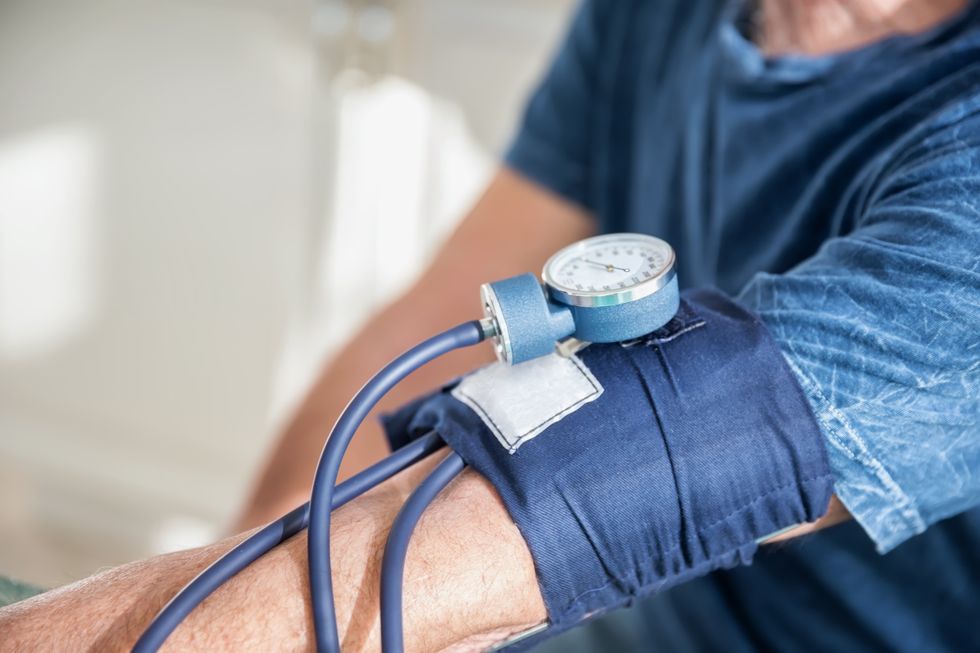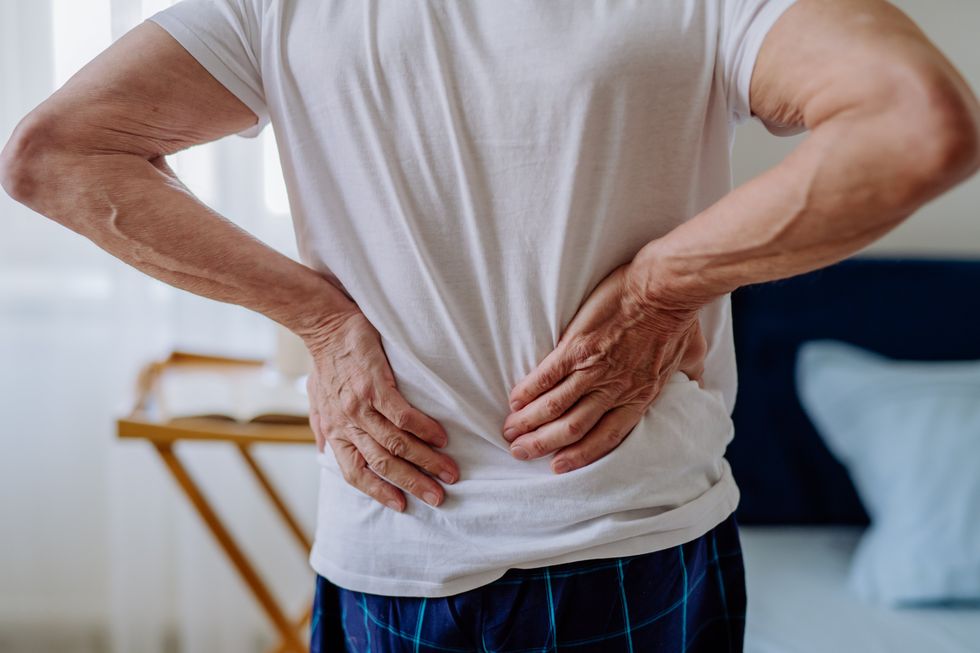High blood pressure: Pain in key body areas could hike risk of silent killer by 45%, warns study of 200,000

The location and duration of pain may make a real difference to people's risk
Don't Miss
Most Read
People with chronic pain face a dramatically higher risk of developing high blood pressure, with those experiencing widespread pain seeing their chances jump by 75 per cent.
A major new study tracking more than 200,000 adults has revealed the connection between long-lasting pain and hypertension.
The research, published in the Hypertension journal, found that depression and inflammation help explain why pain sufferers are more likely to develop the condition.
"The more widespread their pain, the higher their risk of developing high blood pressure," said Professor Jill Pell from the University of Glasgow, who led the research.
TRENDING
Stories
Videos
Your Say

Pain management could prevent cardiovascular complications down the line
| GETTYThe findings highlight just how crucial proper pain management could be in preventing cardiovascular problems down the line.
The research team followed participants for an average of 13.5 years, discovering that nearly 10 per cent went on to develop high blood pressure.
The location and duration of pain made a real difference to people's risk; while those with chronic pain in just one spot faced a 20 per cent higher chance of hypertension, short-term pain carried a 10 per cent increased risk.
Looking at specific areas, chronic stomach pain raised the risk by 43 per cent, headaches by 22 per cent, and neck or shoulder pain by 19 per cent. Hip pain increased risk by 17 per cent, with back pain at 16 per cent.
It turns out chronic musculoskeletal pain is the most common type of long-term pain people experience.
The connection between pain and high blood pressure appears to work through depression and inflammation, with these factors explaining 11.7 per cent of the link.
LATEST DEVELOPMENTS
Depression affected 11.3 per cent of participants, whilst inflammation markers were found in 0.4 per cent.
Professor Pell explained that chronic pain makes people more likely to develop depression, which then increases their blood pressure risk.
"This suggests that early detection and treatment of depression, among people with pain, may help to reduce their risk of developing high blood pressure," she said.
The researchers measured depression through questionnaires about mood and energy levels, while inflammation was tracked using blood tests for C-reactive protein.
Healthcare professionals need to consider blood pressure risks when treating chronic pain patients, according to Dr Daniel Jones, who chairs the American Heart Association's blood pressure guidelines.
"Chronic pain needs to be managed within the context of the patients' blood pressure, especially in consideration of the use of pain medication that may adversely affect blood pressure," Dr Jones said.

Depression and inflammation help explain why pain sufferers are more likely to have high blood pressure
|GETTY
He noted that whilst short-term pain raising blood pressure is well-known, this research helps clarify chronic pain's impact.
Dr Jones called for more trials examining how different pain treatments affect blood pressure, particularly regarding anti-inflammatory drugs like ibuprofen.
The study mainly included middle-aged white British participants, meaning findings might not apply to other groups. Pain levels were self-reported rather than clinically measured.
Our Standards: The GB News Editorial Charter











